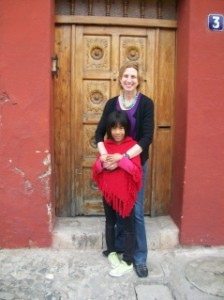This week’s issue of The New Yorker (April 4, 2011) contains a riveting article about the death of Guatemalan attorney Rodrigo Rosenberg that should be read by anyone interested in the country or adoption. A Murder Foretold: Unravelling the Ultimate Political Conspiracy by David Grann begins this way:
Rodrigo Rosenberg knew that he was about to die. It wasn’t because he was approaching old age—he was only forty-eight. Nor had he been diagnosed with a fatal illness; an avid bike rider, he was in perfect health. Rather, Rosenberg, a highly respected corporate attorney in Guatemala, was certain that he was going to be assassinated.
Rosenberg had frequently expressed despair over the violence that consumed Guatemala. In 2007, a joint study by the United Nations and the World Bank ranked it as the third most murderous country. Between 2000 and 2009, the number of killings rose steadily, ultimately reaching sixty-four hundred. The murder rate was nearly four times higher than Mexico’s. In 2009, fewer civilians were reported killed in the war zone of Iraq than were shot, stabbed, or beaten to death in Guatemala.
The violence can be traced to a civil war between the state and leftist rebels, a three-decade struggle that, from 1960 to 1996, was the dirtiest of Latin America’s dirty wars. More than two hundred thousand people were killed or “disappeared.” According to a U.N.-sponsored commission, at least ninety per cent of the killings were carried out by the state’s military forces or by paramilitary death squads with names like Eye for an Eye.
***
In 1996, the government reached a peace accord with the rebels, and it was supposed to mark a new era of democracy and rule of law. But amnesty was granted for even the worst crimes, leaving no one accountable.
***
After the peace accord, the state’s security apparatus—death squads, intelligence units, police officers, military counter-insurgency forces—did not disappear but, rather, mutated into criminal organizations. Amounting to a parallel state, these illicit networks engage in arms trafficking, money laundering, extortion, human smuggling, black-market adoptions, and kidnapping for ransom. The networks also control an exploding drug trade. Latin America’s cartels, squeezed by the governments of Colombia and Mexico, have found an ideal sanctuary in Guatemala, and most of the cocaine entering America now passes through the country. Criminal networks have infiltrated virtually every government and law-enforcement agency, and more than half the country is no longer believed to be under the control of any government at all. Citizens, deprived of justice, often form lynch mobs, or they resolve disputes, even trivial ones, by hiring assassins.
I personally would like to know what author David Grann means by “black-market adoptions.” Use of an alias on paperwork? Change of a birth date? The omission of the name of a husband when one existed? None of those things are “right,” but they are a far cry from baby-snatching, which is what “black-market adoptions” implies, at least to me. Perhaps Grann simply is saying that adoption was handled in a manner he observed often in Guatemala. As my lawyer once told me during my daughter’s adoption, “Things are different here.”
Read more http://www.newyorker.com/reporting/2011
/04/04/110404fa_fact_grann#ixzz1IN5OtDYa



 ShareThis
ShareThis

